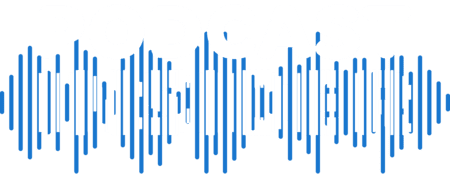
With summer just around the corner, many podcasters are asking whether or not it’s OK to take some time off from recording and publishing to make more time for vacations and leisure. While it’s tempting to think “hey, how much can it really hurt to take a few weeks off?” that “short” break can easily confuse listeners, stall momentum, or become a slippery slope into “podfading” (when a podcast becomes published less and less frequently, until it eventually just fades away.)
While members of the Blubrry team have experimented with taking time off from podcasting, most of us recommend against taking an extended vacation. However, here are some tips that can make occasional breaks less disruptive to your usual schedule and make it more likely that listeners will stick around until you get back.
- Consider your podcast’s age and following. An older, more established podcast with a solid and loyal audience may be able to get away with occasional breaks, but take a vacation when you’re just a few months into podcasting and you may find that your audience forgets about you while you’re gone. “I have created 1120 shows over 11+ years, and my audience has literally built me and my show into their lives,” explains Todd Cochrane, CEO of Blubrry. “While we all need to take breaks from time to time, my first break was 4-5 years into doing my show and then only 1 or 2 episodes at a time.”
- Keep breaks short and schedules consistent. A week off here and there (particularly if you give plenty of notice) isn’t likely to cause your audience to disappear, but 2-3 weeks can easily lead them to give up on you and go looking for new content. The biggest trick is to be consistent and deliver on expectations. For example, if you plan on going from daily to weekly episodes during the month of July, be sure you really follow through on whatever you’ve promised your audience. If they eagerly open up their podcast app on Tuesday expecting your episode and it isn’t there, you may lose them for good.
- Give your listeners plenty of advance notice. Communicating your plan to your listeners will help them understand what to expect and also help keep you accountable and organized during a break or reduced podcasting schedule. If you’ve promised your listeners you’ll be back every other Thursday over summer break, it’ll be that much harder to slack off on that day you’d really rather be at the beach.
- Keep communicating with your audience. Blog posts, social media, and utilizing your email lists are all great ways to stay in touch with your listeners when you aren’t actively publishing. Make sure to stay in front of them in a variety of different ways: after all, if you’re in “vacation mode” chances are so are they, and you’ll need to work harder to stay front of mind.
- Take your podcast on the road. Vacations don’t have to completely disrupt your podcasting schedule! Take a portable studio when you travel so you don’t have to miss a publishing date. It’s OK to keep this simple! “I used to take a massive packout,” explains Cochrane. “I now carry a headset and a zoom for shows I record on the road – it’s no more than 2-3 pounds and packs up in a shaving kit.” If you worry about sound quality, explain to your audience up front that you’re on the road so you might sound a little different than usual. Loyal listeners will just be happy to hear from you, even if the quality is a touch less than usual. If it fits your show topic, you may even be able to incorporate your vacation location into your show!
- Change up your format. Switching to shorter episodes while you’re on vacation or during a time of year that your audience is less engaged may be a welcome way to stay in touch with listeners without spending hours in a recording studio each week (or requiring them to log as much listening time to stay current.) You can also consider bringing in guest hosts, or switching to a less time-intensive recording format (i.e. quick off-the-cuff breakdowns of trending topics rather than lengthy interviews) during times when you’d rather be out flying a kite than inside recording.
Podcasters, how do you stay relevant and front-of-mind while traveling or vacationing?





